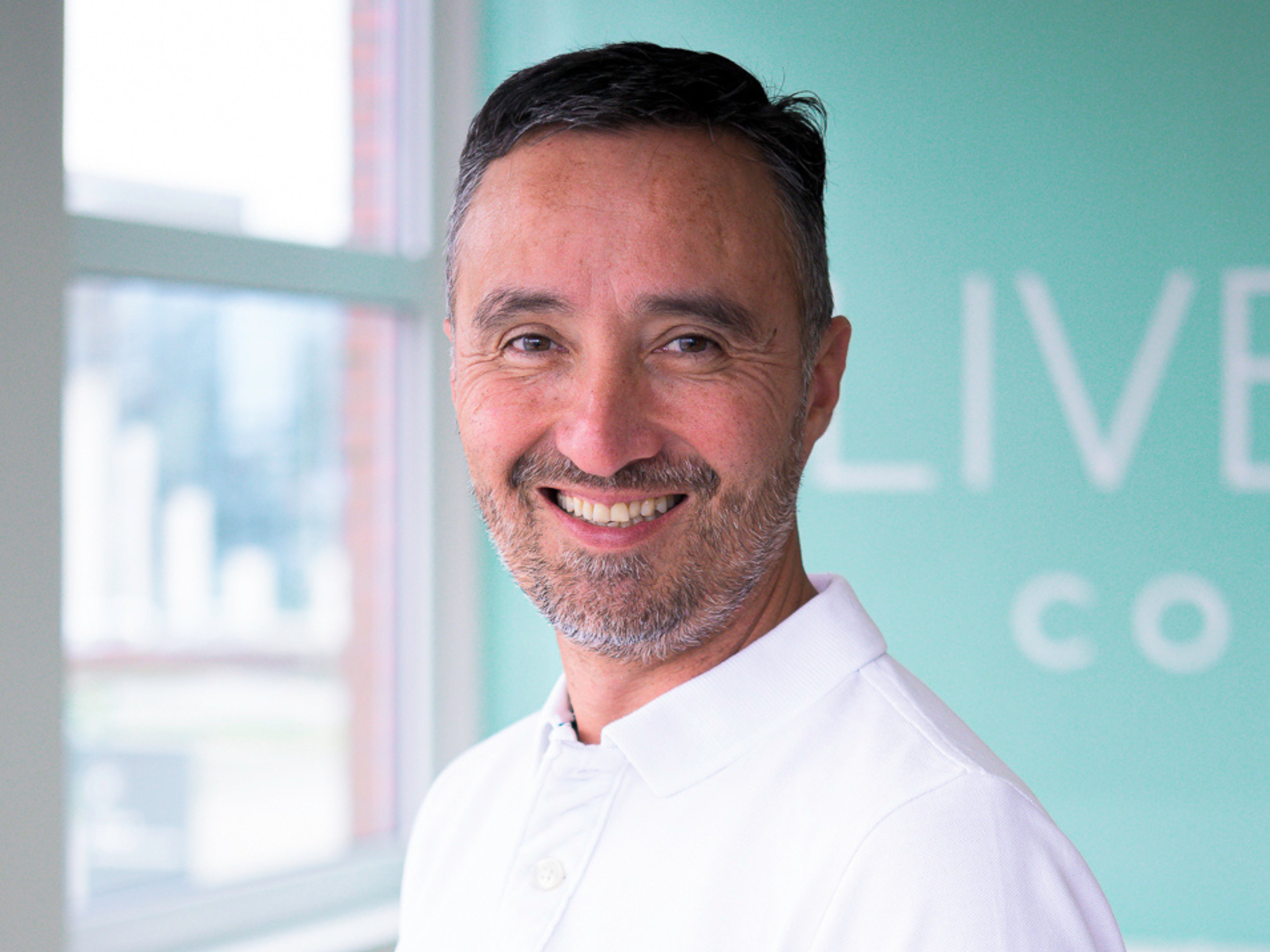
Livekindly Collective is set to become profitable this fall, reversing the plant-based meat industry trend with strong brand building, private-label offerings, and Ed Sheeran.
Fresh from relaunching its Like brand of plant-based meat in the UK, the Livekindly Collective is approaching a key financial milestone: profitability.
The Blue Horizon-owned company’s CEO, David Suarez, has been at the helm for a year now, and has overseen a “bold strategy” that leverages its global footprint to accelerate its profitable growth plan.
“Our trajectory and financial plans indicate that we should be profitable in fall,” he tells Green Queen. “This is a result of applying learnings from many of the lessons. Since I took over last year, we finalised the consolidation of our back-office operations, which allowed us to unlock resources and invest them back in our front-office capabilities and products.”
While sales of plant-based meat have largely been stagnant, the holding company delivered high single-digit year-on-year growth in the first half of 2025. “Our growth over the past years has been consistent even while we were focused on consolidating the different organisations we acquired,” Suarez explains.
“In the first half of 2025, we are starting to collect the fruits of the strategic investments into growth we decided on, and we plan to continue on this path. Our results reflect solid progress not only on revenue growth, but at the same time improved gross margin, disciplined cost control and a clear path towards profitability.
“On top of that, we are seeing early signs of renewed momentum in our core markets, both from our established product range and from innovation-driven launches. We didn’t disregard the headwinds, but learned from them and quickly transformed to keep going strong.”
How Livekindly Collective is driving growth across markets

In the Germany, Switzerland and Austria region, the Like brand achieved double-digit growth, following its launch in the latter in Q2. This was built on strong brand activations like a Protein Bites campaign with Olympic champion Leo Neugebauer (set to relaunch this month to coincide with the Athletics World Championships in Tokyo).
“We’re also investing in brand-building initiatives like our ‘Color Up Your Taste’ collaboration with Berlin artist Josephine, and a major foodservice activation (including pink plant-based burgers) at the Ed Sheeran concerts,” said Suarez.
“In the Nordics, our Oumph brand is really strengthening its position, improving brand awareness and consumer first-choice preference, driven by our improved product quality and recognition through taste awards. In Australia and New Zealand, Fry’s is the clear number-one brand. We recently launched a range of new chilled SKUs and, combined with our campaign celebrating Fry’s 25 years in the region, this has translated into 30% sales growth despite overall category consolidation,” he added.
And in South Africa, both Fry’s and Like are seeing strong momentum. The company’s campaign with retailer Checkers has delivered double-digit uplifts on key SKUs, while its TikTok channels are growing rapidly. “Fry’s now has 15,000 followers with 48 million views, and Like gained thousands of followers since the launch, both growing by over 1,000%,” said Suarez.
“Apart from brand growth, we also took a lead role in shaping new labelling legislation for meat analogues, which gained national media coverage and reinforced our leadership in the category.”
A key lever of the company’s success is its B2B solutions division, which has expanded rapidly since its launch two years ago. Livekindly Collective has boosted its production, ships to 19 countries across five continents, and serves more than 40 customers with both private label and branded products.
“In 2024 alone, the B2B business achieved growth of 48%, with a projected increase of 120% in 2025. This was the first of many different segments we are pursuing to accelerate our growth,” says Suarez. “With our strong manufacturing footprint, three strategically located production sites: Stora Levene in Sweden, Oss in the Netherlands, and Pinetown in South Africa, we can deliver high-quality products at competitive prices.”
‘We’re always looking to make acquisitions’

The headwinds of the plant-based industry, especially a sharp downturn in investment, have led many players to call it quits or sign M&A deals. In the last 12 months, at least 32 companies have either fallen into insolvency, closed, or been acquired, and around half of them are based in Europe.
Suarez’s explanation for this turbulence echoes many industry voices: it’s a young category that is now finally maturing. “It’s become clear that only strong and scalable business models can generate profit to keep investing in growth. From that view, consolidation isn’t necessarily a bad thing,” he says.
“On one hand, sometimes heartbreaking bankruptcies highlight the challenges: slower category growth, high competition, and the difficulty of scaling. But on the other hand, M&A deals can strengthen the industry by bringing together complementary capabilities, for example, combining innovation from startups with the scale, efficiency, and distribution networks of larger players, just like us,” he adds.
“Ultimately, I see it as a positive step towards the growth of the sustainable protein category, [one that] enables taking plant-based mainstream.”
Livekindly Co already owns Like, Fry’s, Oumph!, No Meat, Dutch Weedburger, and Alpha Foods – but is it on the hunt for more brands? “Look, this category will keep consolidating, which – given our strong position in the market – always gives us the opportunity to consider acquiring an organisation that could help us disproportionately accelerate growth and profitability,” says Suarez. “We are always looking, and if we decide to move, we will do it in a very strategic way.”
He continues: “We are constantly having conversations with different types of organisations, big and small, on opportunities to collaborate. The initiatives range from complementing our portfolio with a specific technology being tested, hybrids, or even opening a new market. At the end, we need to conquer more eating occasions, and we can accelerate this by collaborating with other successful companies.”
Asked about the company’s runway, the CEO reiterates the profitability forecast to suggest that Livekindly Collective “should keep looking for opportunities” to become more efficient. This would involve investing strategically in accelerating growth, and operating its supply chain network globally in a more streamlined manner.
Plant-based companies must ‘reframe the UPF narrative’

This month, Livekindly Collective is bringing its Like Meat back to the UK around three years after it quietly exited the market. Rumours swirled that the decision was likely due to increased import and shipping costs post-Brexit.
“What we can afford to do […] is to test brands and products in different markets. We stopped a couple of years ago to focus and accelerate growth where we could obtain the best long-term result for the company,” Suarez offers. “Now, with the learnings of the market and a repositioned brand, we decided to invest back into markets where consumers will benefit from our products. Like launched in South Africa just before the UK, and we are seeing [a] positive response already.”
In the UK, the second-largest market for vegan food in Europe, it is targeting young, health-minded flexitarians with high-protein, high-fibre and low-fat formulations. “We’ve been talking to our customers, and we are attending the need to provide high-quality products to a younger generation of consumers that are health-conscious and on a journey to complement their diets with new protein options,” says Suarez.
A key battle for the brand will be to shake off the ultra-processed food (UPF) tag, which has informed a negative public opinion of meat alternatives. Sales of these products fell by 7% last year, as Brits opted for traditional plant proteins like tofu and beans, leading even plant-based meat players to develop whole-food options.
Like’s products will also face scrutiny from consumers looking for cleaner label, with one of its offerings containing over 30 ingredients. But the company will hope Brits look past the ingredients and processing and focus on the nutritional gains these products offer.
“For me, the opportunity is in reframing the narrative: instead of focusing only on the word ‘processed’ we should highlight the positive impact these foods can deliver to people and the planet,” Suarez says of UPFs. “Many everyday foods, from bread to yoghurt, are processed, and processing often makes products safer, more consistent, and tastier. In fact, around 70% of all foods available in supermarkets are processed. That includes animal meat products.”
“What really matters is the nutritional value. Plant-based products generally contain less saturated fat, no cholesterol, and more fibre than their animal counterparts, and that’s a strong health benefit. At the same time, our R&D team keeps working on delivering even tastier and healthier formulations every day.”
Suarez doesn’t believe the industry got it wrong. “Different players might have come into the category with different objectives,” he explains. “What the market […] teaches us once again is that for an industry to thrive, it requires two main components: meeting consumer expectations and working the scalable model that delivers profit. And Livekindly Collective has these two components to succeed in the long term.”
The post LiveKindly Collective Bucks Plant-Based Meat Slowdown, Expects Profitability This Fall appeared first on Green Queen.
This post was originally published on Green Queen.